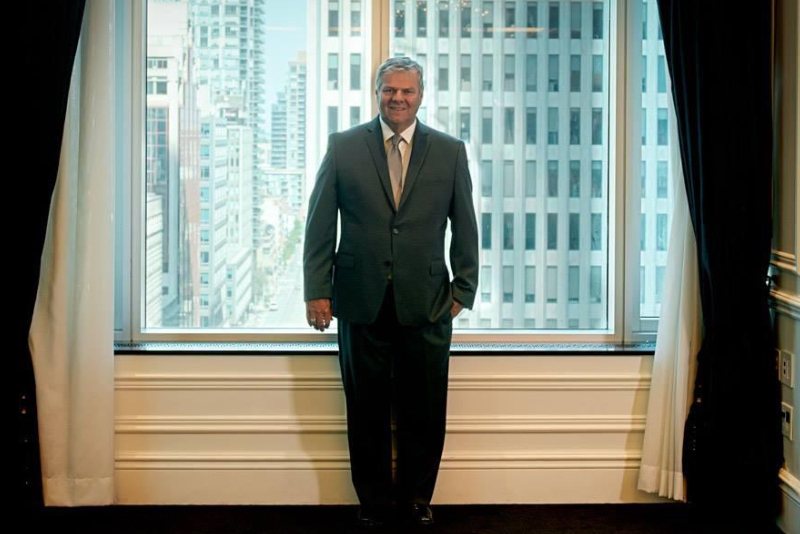
Behind every high-performing luxury team is a leader willing to be coached.
After decades in this business, I can tell you: luxury real estate has no space for average work. The people who buy and sell at this level notice everything: the tone of an email, the timing of a call, the way a home is presented. When something feels off, they pick up on it fast and take their business elsewhere.
These clients expect the same discipline from their real estate team that they expect from their attorneys or financial advisors. They want confidence, precision, and follow-through. Effort doesn’t impress them. Results do.
The teams I’ve coached that stay on top know this better than anyone. They invest in systems that keep their service consistent and work with real estate coaches who push them to raise their standards. But maintaining that level of performance starts and ends with leadership − and that’s where most teams fall short.
Table of Contents:
WEAK LEADERSHIP SHOWS FAST IN LUXURY MARKETS
Leadership cracks faster in luxury than anywhere else. It rarely starts with something big. It begins with small lapses like unclear direction, shifting standards, and goals that change depending on who’s asking. Over time, those small gaps compound. Accountability slips, structure weakens, and the team’s confidence follows.
When leadership loses focus, the team starts improvising. One agent handles clients one way, another does something entirely different, and the brand loses its rhythm. In a market where consistency is currency, that kind of confusion doesn’t stay hidden for long.
Strong leaders prevent this by creating a structure that holds up under pressure. They set expectations, measure progress, and deal with issues before they spread. Weak leaders do the opposite. They rely on trust and talent instead of process, hoping things will sort themselves out. That might work in slower markets, but in the luxury sector, it unravels quickly.
The teams that stay competitive have leadership that makes excellence routine. The ones that don’t spend their energy fixing the same problems again and again, until the market leaves them behind.
HOW TOP-TIER TEAMS STAY AHEAD

Luxury clients notice precision. Top teams make it part of their process.
- The best teams in luxury real estate don’t wait for results; they build them. Everything they do is intentional, and nothing is left to chance. Standards are clear, communication is consistent, and every member knows what success looks like:
- They set clear expectations. Everyone understands their role, their targets, and how their performance contributes to the team’s bigger goals. Progress is reviewed regularly, so problems don’t have time to grow.
- They treat performance as a skill. Metrics guide conversations, not control them. Many leaders lean on real estate coaching programs to sharpen these habits, using data to coach, adjust, and support growth before problems resurface.
- They stay consistent across the brand. Every showing, email, and listing reflects the same tone and quality. Clients recognize the professionalism instantly because it never wavers.
- They rely on systems that protect focus. Well-built processes handle the routine, allowing leaders to stay focused on strategy rather than constantly solving problems.
- They keep pace with their clients. Service feels seamless because the team understands how luxury buyers think, plan, and make decisions − and they operate at that same level.
WHERE GREAT LEADERS START TO SLIP
Even strong leaders can lose control when success starts to feel comfortable. It rarely happens all at once. It begins quietly − a shortcut here, a missed review there − and over time, the standards that built the team start to fade. When that foundation weakens, the same habits that once drove growth begin to work against it.
Here’s where I see most leaders lose their edge, and what it costs them every time:
- They hire for comfort instead of capability. Familiar faces feel safe, but hiring for familiarity over skill weakens performance. A single “comfortable” hire can lower expectations for the entire group.
- They stop enforcing accountability. When small misses go unchecked, they multiply. Without clear feedback and routine check-ins, even good agents start assuming the details don’t matter.
- They ignore continuity. Without a clear succession plan, the business relies on a few key people. When one leaves, operations stall, and clients feel the difference.
- They lose touch with evolving lifestyles. Luxury buyers today move faster, expect more privacy, and value time above all else. Leaders who don’t adjust their systems and communication styles to match those priorities lose relevance.
FAQs
What does a real estate coach actually do for luxury real estate teams?
A real estate coach helps leaders strengthen the systems, structure, and accountability that drive consistent performance. In luxury markets, that often means refining client experience, improving team alignment, and maintaining the level of service high-end buyers and sellers expect.
How is real estate agent coaching different from regular sales training?
Sales training teaches tactics. Real estate agent coaching develops leadership, strategy, and long-term habits. It focuses on how to build a business that runs smoothly, scales effectively, and keeps standards high, even when the market changes.
When should a team leader invest in real estate coaching programs?
The best time is when growth starts to feel unpredictable. Maybe results are uneven, accountability is slipping, or top producers are carrying too much of the weight. That’s when structured real estate coaching programs help leaders regain control, reset expectations, and rebuild balance across the team.
What’s the difference between a real estate coach and a real estate agent mentor?
A real estate coach focuses on systems, performance, and measurable outcomes. A real estate agent mentor provides personal guidance, helping agents apply those systems day to day. The best teams often have access to both: one for structure, the other for support.
How long does it take to see results from real estate coaching?
Progress usually starts within the first few months. Teams notice faster communication, stronger accountability, and more consistent results early on. Building a culture that sustains that performance takes longer, but with the right coaching, every improvement builds on the last.
THE KIND OF COACHING AVERAGE TEAMS CAN’T HANDLE

“Experience isn’t taught; it’s earned.” – Coach Ken
At the highest levels of real estate, experience isn’t a nice-to-have − it’s what separates teams that lead from those that fade. I’ve spent decades building and coaching high-performing teams across North America, and I know what it takes to keep standards high when markets shift.
When I coach leaders, I don’t spend time on motivation. I get into the details: how you hire, how you lead, how you hold people accountable, and how your systems perform under pressure. Those are the foundations of my real estate coaching programs, built for leaders who want long-term results, not quick fixes.
As one of today’s leading real estate coaches, I help teams uncover what’s really holding them back and replace guesswork with systems that work. I work directly with leaders to build habits that scale, strengthen culture, and sustain growth.
If you’re ready to lead at the level luxury demands, let’s talk. Call me, Coach Ken, at 866.248.0008 or send me an email to start a conversation.

